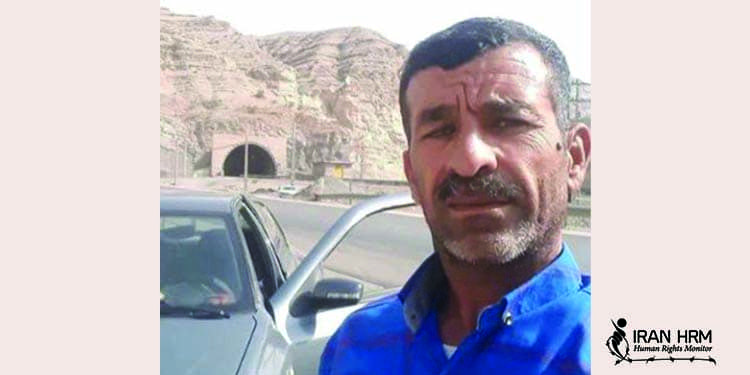Iran-HRM – A political prisoner arrested during the November 2019 uprising has been sentenced to death. Political prisoner Abbas Shelishat has received the death sentence on the alleged charge of killing one of the regime’s agents by the name of Reza Sayyadi.

Mr. Shelishat, 45, has two children. He is one of the residents of Jarrahi in the Port of Mahshahr. Security forces arrested him and his brother in late November 2019.
Eyewitnesses say Captain Reza Sayyadi was the commander of the Revolutionary Guards and the Special Guards Unit (NOPO) who opened fire on protesters on November 18, 2019. During the shooting, someone shot Reza Sayyadi in the back.
The political prisoner Abbas Shelishat has been accused of killing Reza Sayyadi. His interrogators tortured him to extract this false confession, based on which he is now sentenced to death.
This is not the first time the clerical regime sentences a protester to death based on false confessions extracted under torture.
Navid Afkari was executed through a similar procedure in Adelabad Prison of Shiraz on September 12, 2020. There were no other criminalizing documents against Navid, except his false confessions extracted under torture.
Under the International Convenant on Civil and Political Rights, Article 14.3-g, no one should be compelled to testify against himself or to confess guilt.
All video footages and images of the November 18, 2019 uprising in various parts of Mahshahr, including Jarrahi, indicate that the protesters were not armed. They confronted government troops with stones. While the IRGC and NOPO Special Guards used various kinds of automatic rifles to shoot the protesters.
Finally, they forced the protesters to run away to the marshes of Mahshahr where they were gunned down.
This is the first time after two years that the name of Abbas Shelishat (Deris) is mentioned while there are no images to prove his shooting of security forces in Mahshahr.
The UN General Assembly’s Third Committee passed a resolution on November 17, 2021, in which it expressed serious concern at the “alarmingly high frequency of the imposition and carrying-out of the death penalty by the Islamic Republic of Iran, in violation of its international obligations, including executions undertaken against persons on the basis of forced confessions or for crimes that do not qualify as the most serious crimes, including crimes that are overly broad or vaguely defined, in violation of the International Covenant on Civil and Political Rights, expresses concern at the continuing disregard for internationally recognized safeguards, including executions undertaken without prior notification of the prisoner’s family members or legal counsel, as required by Iranian law, and calls upon the Government of the Islamic Republic of Iran to abolish, in law and in practice, public executions, which are contrary to the 2008 directive seeking to end this practice issued by the former head of the judiciary, and to consider establishing a moratorium on executions.”
The Iran Atrocities Aban Tribunal convened in London from November 10-14, 2021. This people’s international tribunal heard the testimonies of many protesters, arrestees, and relatives of the victims killed during Iran protests in November 2019. They revealed shocking details on the mechanism of suppression, torture, and murder of protesters by the Iranian regime’s security forces. Some experts of international law said the slaughter in November 2019 in Iran was a crime against humanity.
Witness 245, who wanted to remain anonymous, told the people’s court that the ambulances carried the wounded to the police station instead of hospital. Several young men who looked under 20 years of age had used a 12-meter object as a shield and threw stones from behind it. Security forces opened a barrage of bullets on them, destroying one’s head and wounding another one.
Opening barrage on innocent and unarmed civilians in the marshlands of Mahshahr on November 18, 2019, is one of the examples of this crime against humanity.
 Shabtabnews In this dark night, I have lost my way – Arise from a corner, oh you the star of guidance.
Shabtabnews In this dark night, I have lost my way – Arise from a corner, oh you the star of guidance.



